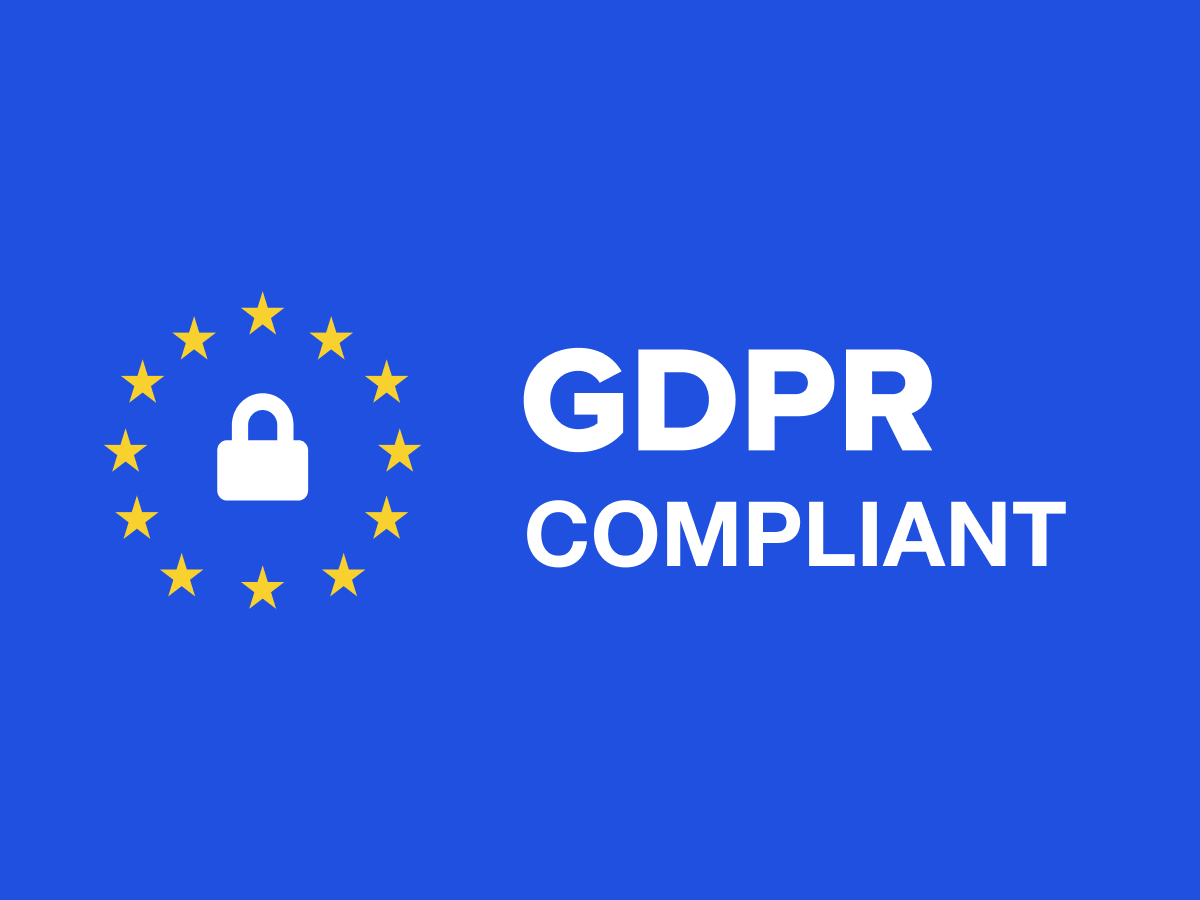In digital marketing, ensuring compliance with regulations is crucial. One such regulation that has reshaped the way businesses handle data is the General Data Protection Regulation (GDPR). This article aims to demystify GDPR compliance in digital marketing, offering a simplified guide for businesses to navigate this regulatory landscape seamlessly.
Understand GDPR in a Nutshell
GDPR is a set of regulations designed to protect the privacy and personal data of individuals within the European Union (EU). It applies not only to businesses based in the EU but also to those outside the EU that process the data of EU citizens. For digital marketers, this means a reevaluation of data collection, processing, and storage practices.
To delve deeper, GDPR not only mandates that businesses must be transparent about their data practices but also requires them to appoint a Data Protection Officer (DPO) if they process large amounts of sensitive data. The DPO oversees GDPR compliance, ensuring that the organization adheres to the principles of transparency, lawfulness, and fairness.
Transparency is Key
One of the core principles of GDPR is transparency. Digital marketing agencies must be transparent about the data they collect and how it will be used. This transparency builds trust with users and ensures that they are fully informed about the use of their personal information.
This transparency requirement extends to the language used in privacy policies and consent forms. Agencies should communicate in clear, straightforward terms, avoiding jargon that may confuse users. Clearly outlining the purposes for which data is collected and processed helps users make informed decisions about granting consent.
Consent Matters
Obtaining clear and affirmative consent is a fundamental aspect of GDPR compliance. Digital marketing agencies need to ensure that users have given explicit permission for their data to be processed. This includes being specific about the purposes for which the data will be used, whether it’s for targeted advertising, analytics, or other marketing activities.
It’s important to note that under GDPR, pre-ticked consent boxes are not valid. Users must actively opt-in, and they should have the ability to withdraw their consent at any time. Digital marketing agencies should implement mechanisms for users to easily manage their preferences and exercise their rights under GDPR.
Data Minimization and Accuracy
GDPR emphasizes the principle of data minimization, encouraging businesses to collect only the data that is necessary for the intended purpose. Digital marketing agencies should not engage in the indiscriminate collection of data but rather focus on gathering information that is directly relevant to their marketing activities.
Moreover, GDPR stresses the importance of data accuracy. Digital marketing agencies should regularly review and update the data they hold to ensure its accuracy. Keeping irrelevant or outdated information not only goes against GDPR but can also lead to ineffective marketing efforts.
Digital marketing agencies can implement data minimization by conducting regular audits of the data they collect and ensuring that it aligns with their marketing goals. This not only enhances compliance but also streamlines marketing efforts, ensuring that resources are focused on reaching the right audience with meaningful content.
The Role of Digital Marketing Agency in GDPR Compliance
Digital marketing agency plays a pivotal role in ensuring GDPR compliance for the brands they work with. It is their responsibility to stay informed about the regulations and implement practices that align with GDPR requirements. This includes updating privacy policies, ensuring secure data storage, and providing guidance to clients on obtaining and managing user consent.
The collaboration between digital marketing agencies and their clients becomes a dynamic partnership in navigating the intricacies of GDPR. Agencies act as advisors, guiding brands through the complexities of compliance while ensuring that marketing strategies remain effective.
A significant aspect of the agency’s role is education. Digital marketing agencies should not only understand GDPR themselves but also impart this knowledge to their clients. This involves conducting workshops, providing informational resources, and offering ongoing support to ensure that clients remain vigilant about compliance.
Furthermore, agencies should have a robust system in place for managing and responding to data subject requests. Under GDPR, individuals have the right to access their personal data, rectify inaccuracies, and even request the deletion of their information. Digital marketing agencies should have efficient processes in place to address these requests promptly, demonstrating their commitment to compliance and respecting user rights.
Securing Data and Preventing Breaches
GDPR places a significant emphasis on the security of personal data. Digital marketing agencies must implement robust measures to protect data from unauthorized access, disclosure, alteration, and destruction. This involves adopting encryption protocols, access controls, and regular security audits to identify and address vulnerabilities.
A critical aspect of data security is ensuring that all staff within a digital marketing agency are well-versed in cybersecurity best practices. From the executives to the marketing teams, everyone should understand their role in safeguarding data. This not only helps prevent breaches but also fosters a culture of data protection within the organization.
Regular training sessions on the latest cybersecurity threats and preventive measures can empower employees to be proactive in identifying potential risks. Implementing multi-factor authentication, encrypting sensitive data during transmission, and keeping software and systems up-to-date are crucial steps in fortifying the agency’s defenses against potential threats.
GDPR and Targeted Advertising
For digital marketing agencies involved in targeted advertising, GDPR introduces challenges and opportunities. On one hand, it requires more explicit consent for personalized ads. On the other hand, it encourages agencies to refine their targeting strategies, focusing on quality over quantity. By aligning advertising efforts with user preferences and consent, agencies can build more meaningful connections with their target audience.
Targeted advertising under GDPR involves a delicate balance between personalization and privacy. Digital marketing agencies should prioritize obtaining clear consent for personalized ads while respecting users’ right to control their data. Implementing granular controls in ad targeting platforms allows users to specify their preferences, giving them a sense of autonomy over their data.
Moreover, agencies can leverage GDPR compliance as a unique selling point. Emphasizing transparent data practices and user-centric advertising strategies can differentiate them in the market. Brands increasingly recognize the value of ethical and compliant marketing partners, making GDPR adherence a strategic advantage for digital marketing agencies.
Continuous Compliance Monitoring
GDPR compliance is not a one-time task but an ongoing process. Digital marketing agencies should establish mechanisms for continuous monitoring and assessment of their data processing activities. Regular reviews ensure that they stay up-to-date with any changes in regulations and promptly adapt their practices to remain compliant.
Implementing a robust compliance management system involves regular internal audits, external assessments, and continuous education for agency staff. Agencies should stay informed about updates and guidance from relevant data protection authorities, ensuring that their practices align with the evolving landscape of data protection laws.
Automation tools can assist agencies in monitoring compliance by providing real-time insights into data processing activities. These tools can track consent management, detect potential security threats, and generate reports for internal and external audits. By leveraging technology, digital marketing agencies can streamline compliance efforts and focus on delivering effective and lawful marketing strategies for their clients.
Conclusion
In the world of digital marketing, GDPR compliance is not just a legal requirement; it’s a commitment to respecting the privacy and rights of individuals. Digital marketing agencies serve as vital partners in this journey, guiding brands to navigate the complexities of GDPR seamlessly. By prioritizing transparency, obtaining clear consent, and embracing data minimization practices, agencies can not only ensure compliance but also build trust and foster stronger connections with their audience.
In the era of data protection, GDPR compliance is not just a regulation to follow; it’s a standard to uphold for ethical and effective
Frequently Asked Questions
Q1: What is GDPR, and how does it impact digital marketing?
A1: GDPR stands for General Data Protection Regulation, a comprehensive data protection law in the European Union. It impacts digital marketing by requiring businesses to handle personal data transparently, obtain clear consent for data processing, and implement robust security measures to protect user information.
Q5: How does GDPR affect targeted advertising?
A5: GDPR affects targeted advertising by requiring explicit consent for personalized ads. Digital marketing agencies need to refine their targeting strategies, focusing on quality over quantity. By aligning advertising efforts with user preferences and consent, agencies can build more meaningful connections with their audience.
Q6: What steps should digital marketing agencies take to secure personal data?
A6: Digital marketing agencies should implement robust security measures, including encryption, access controls, and regular security audits. It’s crucial to protect personal data from unauthorized access, disclosure, alteration, and destruction.





